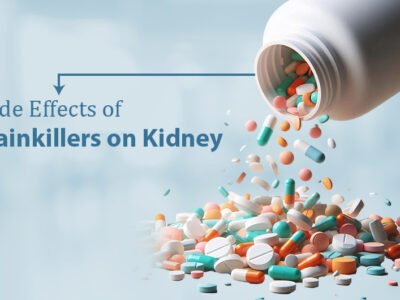The kidneys, like every other organ in the body, take multiple occupations. They’re deeply attached to the part of the body. Their primary use is to drain waste products out of the blood. They also remove excess substances from the blood and keep blood pressure maintained. Kidneys help to create red blood cells. They regulate electrolytes and trigger vitamin D. Kidney damage results in the disruption of these. When the damage to the kidneys continues to get worse and the kidneys become incompetent to do their work, you are said to have degenerative kidney illness. Kidney failure happens to be the final phase of chronic kidney disease. That is the reason that kidney failure is likewise named ESRD. Acute kidney failure causes irreversible loss of kidney use, or end-stage renal illness in a very short span of time. People with end-stage renal illness need either a permanent dialysis machine filtration procedure used to remove toxins and wastes from the body-or the kidney replacement surgery to live.
Symptoms of CKD and Acute renal failure
Symptoms of kidney disease may differ from person to person. Someone, who is in the early stage of kidney disease may not seem ill or notice symptoms as they happen. When kidneys go to flow right, material accumulates in the blood and the body. This condition is known as azotemia. Really poor levels of azotemia may make some, if any, symptoms, when the CKD progresses, symptoms turn into evident. However, in acute renal failure, the symptoms become apparent very rapidly. These symptoms mostly resemble the signs of end-stage renal disease. Some of these symptoms are:
- Reduced amount of urine output
- Fluid gets retained in the body due to which legs, ankles or feet get swelled
- Breathlessness
- tiredness
- Imbalanced state of mind
- Vomiting
- Feeling of weakness
- Skipping heartbeat
- Pain in the chest area
- In some severe cases coma
Causes of Acute renal disease
Kidney diseases mostly affect the nephrons. This affect may make kidneys unable to remove wastes. Reasons behind the disease may include genetic issues, injuries, or medications. You have a higher probability of kidney-related issues if you have diabetes, higher blood pressure, or a short family associated with kidney disease. Degenerative or chronic kidney disease damages these nephrons slowly over some years but acute renal failure does not take that much time to do the same.
Some of the most common causes of acute renal failure are:
- Conditions that reduce the blood flow to the kidneys
- Loss of blood due to injury
- Medicines for blood pressure
- Cardiac arrest
- Heart-related diseases
- Severe Infection
- Sudden Liver failure
- Intake of medications such as aspirin, ibuprofen
- Some severe allergies
- In some rare cases, burns
- Intense dehydration
- Conditions that directly affect kidneys
- Blockage of blood flow due to clots in the blood vessels surrounding the kidneys
- Blockage of blood flow in the kidneys due to abundance of cholesterol
- Inflammation in the filtering elements of the nephrons known as glomerules
- Reduction in the amount of RBCs due to their premature death by some condition
- Autoimmune disease such as lupus that results in Glomerulonephritis
- Intake of NSAIDs and other medications
- Skin and connective tissue disorder known as Scleroderma
- Alcohol and other drug intake
- Conditions that hinder the passage of urine
- Cancer in the lower urinary tract or bladder
- Big clots in any part of the urinary tract
- Cancer in the cervix
- Cancer in the colon region
- Prostate enlargement
- Renal calculi
- Damage in the nerves that regulate the bladder
- Cancer in the prostate
Treatment of Acute renal failure
Your kidney doctor can lower and determine the amount of salt and potassium you will get in until the kidneys recover. The reason for that is both of these substances are excreted from the body through the kidneys. Shifting how and what you take in your diet can treat acute kidney failure. The best is following what your doctor changes in the diet while he deals with the circumstances that caused your condition. This may mean processing the causative disease, getting you off of some specific medications, or making you intake fluids through the IV if you’re dehydrated.
In the Care and treatment for acute kidney disease, you must be at the hospital. The duration of your stay at the hospital depends upon the cause of your condition and the rate of your recovery. Dialysis become the option for some patients who cannot efficiently remove waste from their body through their damaged kidneys, the most important part of the treatment of acute kidney injury is to determine the cause of it.
To know more about kidney-related topics, contact Alfa Kidney Care


